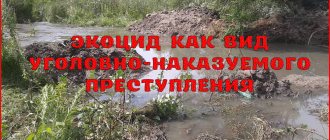www.rsn-msk.ru/Profilakticheskie_meropriyatiya_napravlennye_na_preduprezhdenie_narusheniy_obyazatelnyh_trebovaniy/Veterinarnyy_nadzor/Mery_otvetstvennosti_v_sluchae_vyyavleniya_narusheniy_v_sfere_veterinarnogo_nadzora/
Administrative offenses in the field of veterinary supervision
Article 10.6.
1. Violation of animal quarantine rules or other veterinary and sanitary rules shall entail the imposition of an administrative fine:
- for citizens - from 500
to
1000
rubles; - for officials - from 3,000
to
5,000
rubles; - for persons carrying out entrepreneurial activities without forming a legal entity - from 3,000
to
5,000
rubles or administrative suspension of activities for up to
90
days; - for legal entities - from 10,000
to
20,000
rubles or administrative suspension of activities for up to
90
days.
2. Violation of the rules for combating quarantine and especially dangerous animal diseases shall entail the imposition of an administrative fine:
- for citizens - in the amount of 1000
to
1500
rubles; - for officials - from 5,000
to
7,000
rubles; - for persons carrying out entrepreneurial activities without forming a legal entity - from 5,000
to
7,000
rubles or administrative suspension of activities for up to
90
days; - for legal entities - from 90,000
to
100,000
rubles or administrative suspension of activities for up to
90
days.
Article 10.7.
1. Concealment from state veterinary supervision authorities of information about a sudden death or simultaneous mass diseases of animals or untimely notification of these bodies about a sudden death or simultaneous mass diseases of animals, as well as untimely adoption or failure to take measures to localize these deaths and diseases, shall entail the imposition of an administrative penalty fine:
· for citizens in the amount of 3,000 to 4,000 rubles;
· for officials - from 30,000 to 40,000 rubles;
· for legal entities - from 90,000 to 100,000 rubles.
2. The same actions committed during the period of implementation of restrictive measures (quarantine) in the relevant territory shall entail the imposition of an administrative fine:
· for citizens in the amount of 4,000 to 5,000 rubles;
· for officials - from 40,000 to 50,000 rubles;
· for legal entities - from 100,000 to 150,000 rubles.
·
Article 10.8.
1. Violation of veterinary and sanitary rules for the transportation, transportation or slaughter of animals or rules for the procurement, processing, storage or sale of animal products, except for the cases provided for in parts 2 and 3 of this article, entails the imposition of an administrative fine:
· for citizens in the amount of 500 to 1000 rubles;
· for officials - from 3,000 to 5,000 rubles;
· for legal entities - from 10,000 to 20,000 rubles.
2. Transportation of farm animals and (or) livestock products without veterinary accompanying documents, with the exception of transportation of farm animals and (or) livestock products for personal use, entails the imposition of an administrative fine:
· for citizens in the amount of 3,000 to 5,000 rubles;
· for officials - from 30,000 to 40,000 rubles;
· for legal entities - from 300,000 to 500,000 rubles.
3. Violation of veterinary and sanitary rules for the collection, disposal and destruction of biological waste shall entail the imposition of an administrative fine:
· for citizens in the amount of 4,000 to 5,000 rubles;
· for officials - from 20,000 to 40,000 rubles;
· for persons carrying out entrepreneurial activities without forming a legal entity - from 40,000 to 50,000 rubles or administrative suspension of activities for up to ninety days;
· for legal entities - from 500,000 to 700,000 rubles or administrative suspension of activities for up to ninety days.
Article 14.1. Carrying out business activities without state registration or without special permission (license)
2. Carrying out business activities without a special permit (license), if such a permit (such license) is mandatory (mandatory), entails the imposition of an administrative fine:
- for citizens - in the amount of 2,000
to
2,500
rubles with or without confiscation of manufactured products, production tools and raw materials; - for officials - from 4,000
to
5,000
rubles with or without confiscation of manufactured products, production tools and raw materials; - for legal entities - from 40,000
to
50,000
thousand rubles with or without confiscation of manufactured products, production tools and raw materials.
3. Carrying out business activities in violation of the conditions provided for by a special permit (license) shall entail a warning or the imposition of an administrative fine:
- for citizens - from 1500
to
2000
rubles; - for officials - from 3,000
to
4,000
rubles; - for legal entities - from 30,000
to
40,000
rubles.
4. Carrying out business activities in gross violation of the conditions provided for by a special permit (license) shall entail the imposition of an administrative fine:
- for persons carrying out entrepreneurial activities without forming a legal entity - from 40,000
to
50,000
rubles or administrative suspension of activities for up to
90
days; - for officials - from 4,000
to
5,000
rubles; - for legal entities - from 40,000
to
50,000
rubles or administrative suspension of activities for up to
90
days.
Article 14.43.
Violation by the manufacturer, performer (person performing the functions of a foreign manufacturer), seller of the requirements of technical regulations
1. Violation by the manufacturer, performer (person performing the functions of a foreign manufacturer), seller of the requirements of technical regulations or mandatory requirements for products or to products and the processes of design (including surveys), production, construction, installation, adjustment, operation, storage, transportation, sales and disposal related to the requirements for products, or the release into circulation of products that do not meet such requirements, except for the cases provided for Articles 6.31, 9.4, 10.3, 10.6, 10.8, Part 2 of Article 11.21, Articles 14.37, 14.44, 14.46, 14.46.1, 20.4 of this Code entail the imposition of an administrative fine:
- for citizens - in the amount of 1000
to
2000
rubles; - for officials - from 10,000
to
20,000
rubles; - for persons carrying out entrepreneurial activities without forming a legal entity - from 20,000
to
30,000
rubles; - for legal entities - from 100,000
to
300,000
rubles.
2 Actions provided for in Part 1 of this article, resulting in harm to the life or health of citizens, property of individuals or legal entities, state or municipal property, the environment, life or health of animals and plants, or creating a threat of harm to the life or health of citizens, the environment, life or health of animals and plants shall entail the imposition of an administrative fine:
- for citizens - in the amount of 2,000
to
4,000
rubles with or without confiscation of the items of the administrative offense; - for officials - from 20,000
to
30,000
rubles; - for persons carrying out entrepreneurial activities without forming a legal entity - from 30,000
to
40,000
rubles with or without confiscation of the items of the administrative offense; - for legal entities - from 300,000
to
600,000
rubles with or without confiscation of the items of the administrative offense.
3 Repeated commission of an administrative offense provided for in Part 2 of this article shall entail the imposition of an administrative fine:
- for citizens - in the amount of 4,000
to 5,000
rubles
with confiscation of the items of the administrative offense; - for officials - from 30,000
to
40,000
rubles; - for persons carrying out entrepreneurial activities without forming a legal entity - from 40,000
to
50,000
rubles with confiscation of the items of an administrative offense or administrative suspension of activities for up to ninety days with confiscation of the items of an administrative offense; - for legal entities - from 700,000
to
1,000,000
rubles with confiscation of the items of an administrative offense or administrative suspension of activities for up to ninety days with confiscation of the items of an administrative offense.
Article 14.44. False declaration of product conformity
1. False declaration of product conformity shall entail the imposition of an administrative fine:
· for officials - from 15000
up to
20,000
rubles;
· for legal entities - from 100000
up to
300,000
rubles.
2. False declaration of conformity of products put into circulation for the first time, related to the type, type of product for which mandatory certification is provided, or unreliable declaration of such products on the basis of one’s own evidence in the event that standardization documents are absent or cannot be applied, as a result the application of which ensures compliance with the requirements of technical regulations, entails the imposition of an administrative fine:
· for officials - from 25000
up to
35,000
rubles;
· for legal entities - from 300000
up to
500,000
rubles.
3. Actions provided for in parts 1 and this article, resulting in harm to the life or health of citizens, property of individuals or legal entities, state or municipal property, the environment, life or health of animals and plants, or creating a threat of harm to the life or health of citizens, the environment environment, life or health of animals and plants. The following shall entail the imposition of an administrative fine:
· for officials - from 35000
up to
50,000
rubles;
· for legal entities - from 700000
up to
1,000,000
rubles.
Violation of veterinary rules and rules established to combat plant diseases and pests
1. Violation of veterinary rules, which through negligence resulted in the spread of epizootics or other grave consequences,
is punishable by a fine in the amount of up to one hundred and twenty thousand rubles or in the amount of the wages or other income of the convicted person for a period of up to one year, or by compulsory labor for a period of up to four hundred and eighty hours. , or correctional labor for a term of up to two years, or restriction of liberty for a term of up to two years, or forced labor for a term of up to two years, or imprisonment for the same term.
2. Violation of the rules established for the fight against plant diseases and pests, which through negligence entailed grave consequences, -
shall be punishable by a fine in the amount of up to one hundred twenty thousand rubles, or in the amount of the wages or other income of the convicted person for a period of up to one year, or by compulsory labor for a term of up to three hundred and sixty hours, or by corrective labor for a term of up to one year, or by restriction of liberty for a term of up to two years.
Events
01/20/2020 Keeping animals in private farms must comply with the rules. This is necessary to prevent outbreaks of dangerous diseases and maintain sanitation at the proper level. The standards regulate the handling of products, waste, and maintaining order in premises and feed warehouses. Compliance with them makes it possible to reduce mortality on the farm and ensure veterinary and sanitary safety.
Not only large farms, but also owners of personal subsidiary plots are required to comply with the law. Compliance control is carried out by the Federal Service for Veterinary and Phytosanitary Surveillance and its territorial departments within the framework of federal state veterinary supervision. Standards for keeping animals are regulated by federal legislation and municipal acts.
Veterinary and sanitary requirements
In order to carry out veterinary control properly, the municipality registers productive animals living on farms. Owners of private household plots must contact the administration to make entries about the number of livestock in the household register. Special mention should be made about this book. It is an official document that must be maintained in accordance with the procedure established by the Ministry of Agriculture. The use of information from it is permitted when implementing activities by executive authorities. The household register is the only official document confirming that a citizen has a personal subsidiary plot.
To register the number of productive animals or birds, contact the local administration with an application for registration of the farm. To carry out the necessary actions, it is necessary to inform the specialist about the number of animals and birds of each species. In small settlements, the local government carries out an annual walk-through to survey farm owners about the number of animals. In addition to general standards, the municipality may present its own. They are developed in the form of rules and are subject to execution, and for violation there is liability.
Farms themselves are required to keep records of livestock using free form documents, as well as assigning inventory numbers to animals through the use of various forms of tagging: chipping, branding, attaching tags. If an animal is removed from the farm register for one reason or another, the local government body and the state veterinary service must be notified about this.
Procedure and conditions of detention
To ensure comfortable coexistence between humans and animals, standards also establish the placement of buildings on the territory of farms that house breeding stock.
In addition to special standards when locating business facilities, the following must be observed:
- urban planning standards;
- environmental;
- sanitary and hygienic;
- fire protection
Buildings for keeping animals must be located at the required distance from residential buildings and fences. Rationing is established by veterinary regulations and the municipality.
Rules for preparing veterinary documents
The issue of issuing veterinary accompanying documents is regulated in detail by federal legislation. It is necessary to draw up such documents not only when handling animal products for sale, but also when carrying out actions with live stock.
- Registration of veterinary documents is necessary when producing products of animal origin for the purpose of sale.
- The movement of animals, poultry and products also requires the preparation of documents.
- The transfer of ownership from one person to another for agricultural products and productive animals is accompanied by the execution of veterinary accompanying documents.
Modern technologies make it possible to issue certificates electronically. This method received the right to be implemented thanks to an order from the Ministry of Agriculture.
To prepare veterinary documents, you need to know who has the competence to issue certificates of various forms.
| Bodies that have the right to issue veterinary documents | |
| Document form | Authority that has the right to issue a document |
| No. 1, 2, 3 and veterinary certificates of form No. 4 | institutions subordinate to the executive authorities of the constituent entities of the Russian Federation in the field of veterinary medicine |
| No. 5a, 5b, 5c, 5d, 5e, 5f, 5g, 5h, 5i, 5j, 5k, 5l, 6.1, 6.2, 6.3 | territorial bodies of Rosselkhoznadzor |
Having determined your competence, contact the authorized body with an application to issue the required certificate. Most veterinary documents are processed in one business day and are valid for five days from the date of issue.
Transportation of a large number of farm animals, in addition to veterinary regulations, requires an inventory indicating data for each breeding animal:
- nickname;
- inventory number;
- view;
- floor.
Violation of the regime for obtaining documents can lead to the destruction of products and even live stock. This is due to the unfavorable epizootic situation in some regions of the country.
Veterinary rules: rights and obligations of owners
Owning a livestock of farm animals imposes many obligations, since animals are carriers of many dangerous diseases. A negligent attitude towards one's duties in this situation is unacceptable. Control authorities strive to verify compliance by individuals with rules and regulations, but without the conscious attitude of the owners themselves, this will be of little use.
The owner of farm animals has the right:
- breed animals on your own property in the quantities permitted by local authorities;
- receive subsidies and preferential loans from the state for the development of their economy;
- receive products from your animals and sell them, following the rules;
- graze livestock on organized pastures.
An economic entity - owner of farm animals is obliged to:
- register each animal in the household book;
- vaccinate productive animals against especially dangerous and quarantine diseases;
- notify the veterinary station about the death of livestock from unknown causes;
- slaughter livestock in the prescribed manner;
- comply with veterinary and sanitary standards when organizing the life of animals;
- do not allow animals to go into public places;
- Monitor the cleanliness of the area, remove waste and prevent infestation.
Expert advice
Neighborhood with farm animals rarely suits all neighbors; the law in these situations most often ends up on the side of people. Therefore, in order to avoid troubles and administrative measures, try to adhere to the law and find compromises.
- At the stage of constructing utility rooms, take care of cleaning the waste and think about how to organize regular flushing of waste systems. If your farm does not emit unnecessary odors, you can assume that half of your problems are gone.
Install objects in which animals will be placed as far as possible from the fence and neighboring buildings.
- A tall and strong fence is your best ally. The less your neighbors see, the easier it is for them to accept the fact of a difficult neighborhood. An ideal fence should be solid and not allow sounds and smells to pass through.
- Try to vaccinate your livestock on time; an accidental complaint can result in an inspection and investigation.
- Never slaughter livestock yourself; this is a violation of many veterinary norms and regulations.
- Previous news
- Return to list
- Next news
Commentary on Article 249 of the Criminal Code of the Russian Federation
1. The public danger of violating veterinary rules or rules established to combat diseases and (or) plant pests is to undermine the environmental safety of Russia, the spread of epizootics, and the occurrence of other serious consequences.
The commented article contains two alternative elements of the crime reflected in parts 1 and 2 of the commentary. articles. Both compositions describe socially dangerous acts that fall into the category of careless crimes of minor gravity.
2. The main object of criminal encroachment is the environmental safety of society, regulated by the rules of veterinary medicine and (or) the fight against plant diseases and pests, ensuring socially beneficial activities in the field of animal husbandry, crop production, vegetable growing, horticulture, and in some cases, forestry. Optional objects include the life and health of animals, human health, the vitality and ecological balance of other ecosystems.
3. The subject of a criminal violation of veterinary rules and (or) rules established to combat plant diseases and pests is the actual biological structure of natural environmental objects.
4. The objective side of the crime is expressed in violation of veterinary rules, as well as rules established for the fight against diseases and plant pests. This violation may occur in the form of an act or omission.
4.1. Veterinary activities are carried out on the basis of a license (licenses), under which the licensee carries out treatment and preventive, laboratory and diagnostic, production, and sales activities (see Regulations on the Federal Service for Veterinary and Phytosanitary Surveillance, approved by Decree of the Government of the Russian Federation of June 30. 2004 N 327 (as amended on October 14, 2006) <1>). One of the manifestations of active violation of veterinary rules can be considered the implementation of veterinary activities without a license. At the same time, violation of veterinary rules may also occur during production, transportation (including import into the Russian Federation, transit through its territory and export of goods under the control of the veterinary service), slaughter, processing and sale of livestock products, as well as during the use and sale of drugs and technical means for veterinary purposes. ——————————— <1> RG. N 150. 2004; NW RF. 2005. N 33. Art. 3421; 2006. N 22. Art. 2337, N 26. Art. 2846, N 52 (part 3). Art. 5587.
4.2. Active violation of the rules established to combat plant diseases and pests is possible, for example, during the production, procurement, processing and transportation of products of plant origin; import from foreign countries of quarantine and other dangerous pests, plant diseases and weed seeds, which can cause significant damage to the national economy.
4.3. Passive violation of veterinary rules and rules established for the control of plant diseases and pests can be expressed in violation of the rules for keeping animals, storing livestock and crop products, failure to carry out appropriate zoohygienic or veterinary-sanitary control, control over the standardization of veterinary-sanitary indicators, feed characteristics, feed additives and animal products, ensuring their safety for human and animal health, or failure to implement anti-epizootic measures (including measures to prevent and eliminate diseases common to humans and animals).
5. The disposition of the article belongs to the category of reference-blanket ones, since in order to properly qualify a socially dangerous act as a crime, it refers the law enforcement officer to other laws and by-laws, among which it should be noted the Law of the Russian Federation of May 14, 1993 N 4979-1 “On Veterinary Medicine” (as amended on December 30, 2006) <1>; Rules for organizing work on issuing veterinary accompanying documents, approved. By Order of the Ministry of Agriculture of Russia dated November 16, 2006 N 422 <2>; Veterinary and sanitary rules for the collection, disposal and destruction of biological waste, approved. By order of the State Veterinary Inspectorate of Russia dated December 4, 1995 N 13-7-2/469 (as amended on June 13, 2006) <3>; Regulations on the division of State Veterinary Supervision at enterprises for the processing and storage of livestock products, approved. By order of the State Veterinary Inspectorate of Russia 10/14/1994 N 13-7-2/173 <4>; Veterinary and sanitary rules for the use and processing of imported meat and meat products, approved. By Order of the State Veterinary Inspectorate of Russia dated July 13, 1994 N 13-7-2/129 <5>; Rules for the provision of paid veterinary services, approved. Decree of the Government of the Russian Federation dated August 6, 1998 N 898 (as amended on December 14, 2006) <6>; Regulations on state veterinary supervision in the Russian Federation, approved. Decree of the Government of the Russian Federation of June 19, 1994 N 706 (as amended on April 16, 2001) <7>; Regulations on the implementation of state sanitary and epidemiological supervision in the Russian Federation, approved. Decree of the Government of the Russian Federation of September 15, 2005 N 569 <8>; Regulations on the State Service for Plant Quarantine in the Russian Federation, approved. Decree of the Government of the Russian Federation of April 23, 1992 N 268 (as amended on October 1, 1998) <9>, etc. ——————————— <1> Vedomosti RF. 1993. N 24. Art. 857; NW RF. 2002. N 1 (part 1). Art. 2; 2004. N 27. Art. 2711, N 35. Art. 3607; 2005. N 19. Art. 1752; 2006. N 1. Art. 10; RG. N 290, 297. 2006.
<2> BNA. 2006. N 52.
<3> RV. 1996. N 35.
<4> RV. 1995. N 5.
<5> RV. 1994. N 189.
<6> Northwestern Russian Federation. 1998. N 33. Art. 4012; 2001. N 17. Art. 1714; 2003. N 40. Art. 3892; 2006. N 52 (part 3). Art. 5587.
<7> Northwestern Russian Federation. 1994. N 9. Art. 1007; 2001. N 17. Art. 1714.
<8> Northwestern Russian Federation. 2005. N 39. Art. 3953.
<9> Northwestern Russian Federation. 1998. N 40. Art. 4970.
6. According to the legislative structure, the elements of the crime are material. The crime is completed (by the elements) at the moment of the spread of an epizootic through negligence (part 1) or the onset of other grave consequences also due to negligence (parts 1, 2).
7. For epizootics, see paragraph 6.3 of the commentary. to Art. 248.
7.1. The object of an epizootic can be agricultural, domestic, zoo and other animals, fur-bearing animals, birds, fish, bees, etc.
7.2. Infectious diseases can be introduced with imported animals (including birds, fur-bearing animals, laboratory, zoo and domestic animals, sea animals, bees, fish, other aquatic organisms, animal embryos and sperm, fertilized eggs), products (meat and meat products, milk and dairy products, fish, eggs, beekeeping products), raw materials of animal origin (skins, wool, furs, down, feathers, endocrine and intestinal raw materials, blood, bones and other types of raw materials), fodder and other cargo (veterinary drugs, biological materials and collectibles of animal origin) or biological waste (carcasses of animals and birds, including laboratory ones, aborted and stillborn fetuses), veterinary confiscations (meat, fish, other products of animal origin), identified after a veterinary and sanitary examination at slaughter stations, slaughterhouses , in meat and fish processing organizations, in markets, in trade organizations and other facilities, other waste generated during the processing of food and non-food raw materials of animal origin (see. Regulations on the State Veterinary Service of the Russian Federation for the protection of the territory of Russia from the introduction of infectious animal diseases from foreign countries; Veterinary and sanitary rules for the collection, disposal and destruction of biological waste).
8. Other grave consequences provided for in Part 1 of the comment. article, see paragraph 10.5 comment. to Art. 246. These consequences also include the death of wild animals, birds, other natural objects, and harm to human health.
9. Grave consequences provided for in Part 2 of the comment. articles, in addition to what is listed in paragraph 10.5 of the commentary. to Art. 246 harms include destruction or damage (to the point of cessation of growth) of forests, death of wild animals, birds, and other natural objects, withdrawal of agricultural land from circulation, and harm to human health.
10. The subjective side of the crime is characterized by guilt in the form of negligence.
11. The subject of a criminal offense is a sane individual who has reached the age of 16 at the time of its commission, who is charged with the obligation to comply with and fulfill the requirements of veterinary rules, as well as the rules established for the fight against diseases and plant pests. An official who, contrary to the duties assigned to him, does not exercise control over the implementation of organizational, production and veterinary preventive measures by enterprises, institutions, organizations, citizens, and their compliance with the specified rules, which leads to those noted in the comment. article consequences, may be brought to the Criminal Code under Art. 293.









